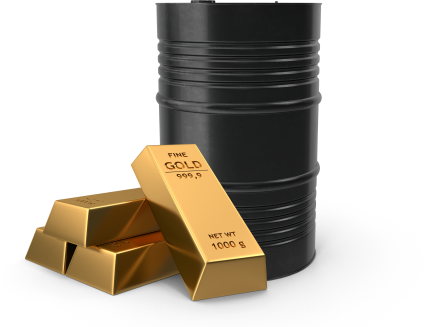What are Commodities?
A commodity is a physical asset that fulfils a need, is produced in substantial quantities and is fungible – i.e. its individual units are entirely interchangeable.
Register Now
What Are the Types of
Commodities?
Commodities are characterised across two main axes: hard/soft and categories.
Hard commodities are those that are extracted from the earth, such as mining products – metals and oil products, for example. Soft commodities are those that are grown – primarily agricultural, including livestock.
Separated into categories, commodities can be metals, energy, livestock & meat, and agricultural (cultivated products).
To be interchangeable, these products must conform to a set of characteristics as determined (usually) by a commodities exchange where the specific commodity is traded. The characteristics are set in order to enable large-scale production and distribution based on a single quoted price. Thus, for example, Gold that is traded on the Shanghai Gold Exchange, the London Metal Exchange and COMEX (the US Commodities Exchange in New York), must be of 95% purity minimum, and 99.9 and 99.99% purity are common. Its price is quoted in dollars per 1 troy ounce. Thus, each bar of tradeable Gold will be the same no matter where it was created and/or traded or at least priced with reference to it.
Oil is traded under (mainly) 2 benchmarks – West Texas Intermediate for most US products and Brent from the North Sea oil fields. WTI, as traded by NYMEX (the New York Mercantile Exchange) for example, is light (between 37 and 42 degrees API gravity) and sweet (less than 0.42% Sulphur content).





